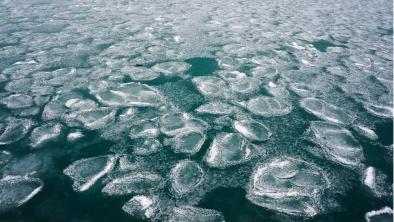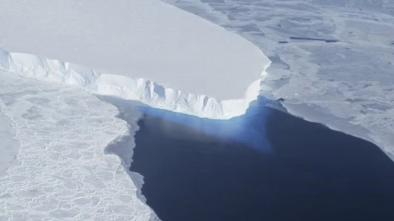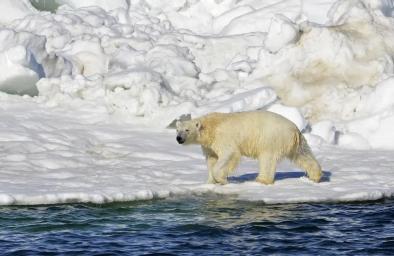Science Source
Arctic warming hotspot in the northern Barents Sea linked to declining sea-ice import
- States the Arctic has warmed dramatically in recent decades, with greatest temperature increases observed in the northern Barents Sea
- States the warming signatures are not constrained to the atmosphere, but extend throughout the water column
- Uses a compilation of hydrographic observations from 1970 to 2016 to investigate the link between changing sea-ice import and this Arctic warming hotspot
- Finds a sharp increase in ocean temperature and salinity from the mid-2000s
- Shows the sharp increase in ocean temperature and salinity can be linked to a recent decline in sea-ice import and a corresponding loss in freshwater, leading to weakened ocean stratification, enhanced vertical mixing and increased upward fluxes of heat and salt that prevent sea-ice formation and increase ocean heat content
- Deduces the northern Barents Sea may soon complete the transition from a cold and stratified Arctic to a warm and well-mixed Atlantic-dominated climate regime
- Concludes that such a shift would have unknown consequences for the Barents Sea ecosystem, including ice-associated marine mammals and commercial fish stocks
Related Content
Science Source
| Nature
Regime shift in Arctic Ocean sea ice thickness
Headline

Feb 21, 2023 | Climate Nexus Hot News
Ice Absent From Great Lakes, New England
Headline

Feb 16, 2023 | Climate Nexus Hot News
Antarctic Sea Ice At Lowest Recorded Levels, Again; Thwaites Glacier's Weak Spots Getting Weaker
Headline

Jan 25, 2023 | Climate Nexus Hot News
Melting Sea Ice Could Increase Threatens Polar Bears, People


